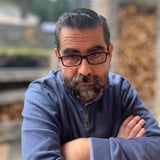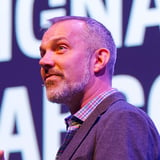Summary
More and more researchers with no business or product backgrounds are in product research. In the day-to-day industry practice, we are called to march towards the same goal despite our different ways of knowing, talking, and past experiences. Failing to do so could lead to missing opportunities for innovation, reinventing the wheels, and building products that may pose risks to society. When ‘thought worlds’ collide, what can we do to better understand and support each other? This talk answers the question by taking a closer look at the differences and similarities between research and practice, and offering lessons learned about communication and collaboration within diverse product teams made up of a mix of academic and professional disciplines.
Key Insights
-
•
The research-practice gap exists not just between academia and industry but also among different research layers like academic, applied, and design research.
-
•
Academics focus on advancing knowledge often without immediate practical impact, while industry prioritizes delivering value quickly and actionably.
-
•
Researchers and practitioners frequently fail to engage or communicate on platforms like Twitter, contributing to mutual isolation.
-
•
Translating complex academic findings into accessible, actionable language significantly improves their usability for designers.
-
•
The timing of delivering research resources is crucial; designers seek different information at different phases of the design process.
-
•
Combining research dissemination with marketing strategies and knowing your audience increases the effectiveness of communication.
-
•
Interdisciplinary teams benefit from starting conversations with personal introductions and goals before diving into business discussions.
-
•
Conflict in teams is inevitable but manageable by steering it into constructive debate and fostering psychological safety.
-
•
Self-awareness about how one debates and communicates disagreement improves team dynamics and outcomes.
-
•
Personal identity and relationships deeply influence how one navigates and bridges gaps between different professional and cultural worlds.
Notable Quotes
"My talk is about being misunderstood and navigating an identity crisis."
"What exactly did you observe that makes you say that? What past experience let you think that way?"
"The research-practice gap frustrates me, and I try to bridge it when it makes sense to."
"Science doesn’t just check truth; it has to win hearts and minds."
"Design has to be fast, accessible, actionable, and intuitive, whereas science is often slow and hard to act on."
"If you want to prove someone wrong, you’re actually not seeing the person in front of you."
"Teams with different thought worlds should start with who they are, what their roles are, and their passions inside and outside work."
"Strong teams are self-aware of how they communicate disagreement and interpret others."
"It’s our job to see the person in front of us, and if that means having an uncomfortable conversation, have that conversation."
"As you touch a human soul, be just another human soul."
Or choose a question:
















More Videos

"Without trust, no relationship can prosper, yet many companies still install tracking software that employees try to circumvent."
Ana FerreiraDesigning Distributed: Leading Doist’s Fully Remote Design Team in Six Countries
January 8, 2024

"Some people said I don’t think I’m qualified enough to observe research sessions despite training."
Roy Opata OlendeHow Zapier Uses ‘All Hands Research’ to Increase Exposure to Users
August 6, 2020

"Designers focus on shipping and don’t have bandwidth for documenting learnings or synthesizing knowledge across products."
Kit Unger Jackie Ho Veevi Rosenstein Vasileios XanthopoulosTheme 2: Discussion
January 8, 2024

"To influence others, you must be willing to be influenced and change your mind to align with organizational goals."
Abbey Smalley Sylas SouzaScaling UX Past the Size of Your Team
January 8, 2024

"Humans tend to give too much authority to autonomous systems, which can lead to overtrust."
Helen ArmstrongAugment the Human. Interrogate the System.
June 7, 2023

"Collaboration with participants via video is possible even in constricted remote or hybrid work environments with the right methods."
Bas Raijmakers, PhD (RCA) Charley Scull Prabhas PokharelWhat Design Research can Learn from Documentary Filmmaking
March 11, 2022

"Sometimes with kids, you just have to get artifactual data or creative outputs because they can’t always articulate."
Mila Kuznetsova Lucy DentonHow Lessons Learned from Our Youngest Users Can Help Us Evolve our Practices
March 9, 2022

"Qualitative synthesis is like watching a movie in a cinema; AI synthesis feels like watching a recap on YouTube—fast but missing the immersive experience."
Weidan LiQualitative synthesis with ChatGPT: Better or worse than human intelligence?
June 4, 2024

"If you want to improve the product team’s understanding, frame UX value in terms of their language and goals, not just UX jargon."
Christian CrumlishAMA with Christian Crumlish, author of Product Management for UX People
March 24, 2022
















